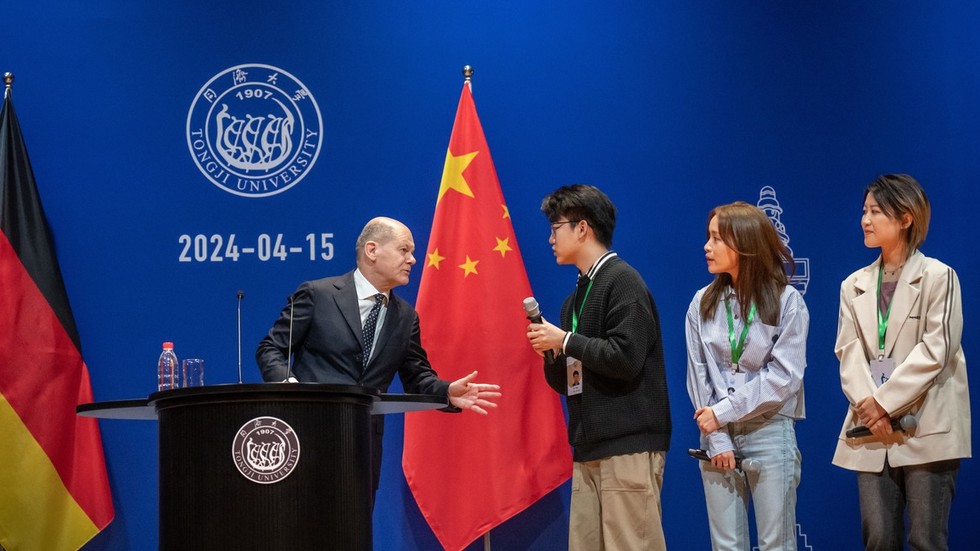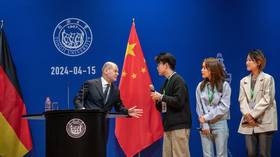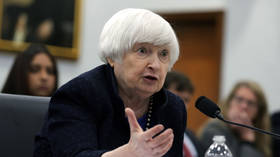
Speaking in Shanghai, Olaf Scholz has said the only prerequisite is that “competition must be fair”

German Chancellor Olaf Scholz at Shanghai’s Tongji University as part of his three-day visit to China. © Michael Kappeler/Getty Images
German Chancellor Olaf Scholz has spoken in favor of opening the European market to Chinese automakers as long as they compete “fairly” with other manufacturers.
Scholz arrived in China on Sunday for his second visit to the country as chancellor. He is being accompanied by several German chief executives, including the bosses of carmakers Mercedes-Benz and BMW and the chemical giant BASF.
The chancellor visited the major industrial hub of Chongqing on Sunday, and is expected to meet Chinese President Xi Jinping and Prime Minister Li Qiang before leaving late on Wednesday.
Speaking to students at Tongji University in Shanghai on Monday, Scholz cited the initial fears associated with the entry of Japanese and South Korean cars into Europe, but said they had not ended up dominating the market or skewing its balance.

“There are Japanese cars now in Germany and German cars in Japan,” Scholz stated, adding that “at some point there will also be Chinese cars in Germany and Europe.
According to the chancellor, “the only thing that must always be clear is that competition must be fair… [that] there is no dumping, that there is no overproduction, that copyrights are not infringed.”
Scholz also stressed the importance of a “level playing field,” clarifying that German companies should be allowed to establish production facilities in China and vice versa with as little red tape as possible.
Beijing remained Berlin’s top trading partner for the eighth straight year in 2023.
Chinese automakers have actively penetrated foreign markets in recent years and are steadily closing the gap with Western rivals, particularly in terms of electric cars.
In Russia, Chinese vehicles have quickly filled the vacuum left by a number of major European car manufacturers after they exited the market due to the Ukraine conflict.




